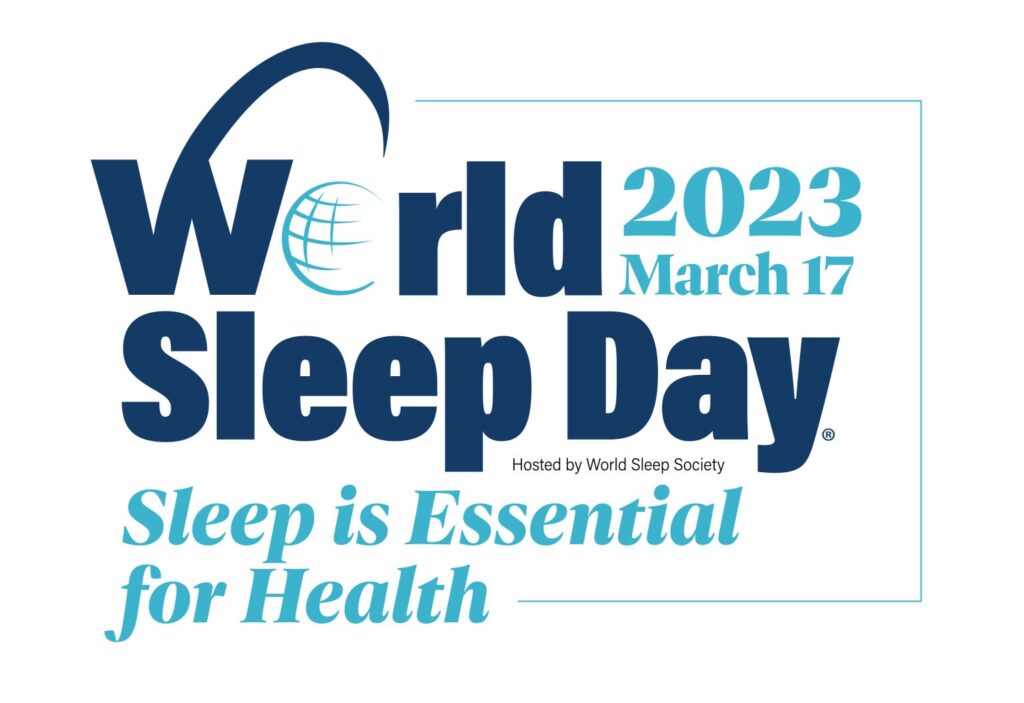As we celebrate world sleep day on March 17th ,2023, the theme for this year is sleep is essential for health.
Healthy sleep is sleep which restores and energizes a person, so he or she feels wide awake, dynamic and energetic all day long. Health and disease are opposites, and therefore, when disease (disorder) of sleep does exist, sleep investigation is worded to identify and treat it. Sleep disorders are not rare, and they can cause serious problems, if left untreated.
The optimal sleep duration requirement is largely determined by heredity. However, large surveys show the average sleep duration for an adult is about 7 to 8 hours.
Technically, sleep specialists agree the range of 6.68-10 hours of sleep per night is the optimum amount.
What are healthy sleep habits?
A restorative sleep depends on duration of sleep, depth of sleep and continuity. A few guidelines for healthier sleep:
• Allow for an adequate amount of sleep every night (sleep duration).
• Establish a regular sleep and wake up schedules. Start by selecting a bedtime when you can fall asleep easily; keep your rising time constant; if you feel you are not getting enough sleep, try to go to bed earlier.
• Ensure your sleep is continuous by eliminating as many sleep disturbances as you can (sleep continuity).
• If you changed your usual sleep schedule, try to return to your regular schedule as soon as possible.
How can I get on a regular sleep schedule?
Maintain a regular sleep schedule by going to bed at the same time every night and waking up at the same time every day, seven days a week. Regularity is important for stabilizing your internal biological clock, allowing you to fall asleep and maintain uninterrupted sleep.
Can you really get a sleep deficit?
Yes. Chronic sleep deficits are common and occur when a person does not obtain the needed amount of sleep on a permanent basis. There are numerous causes of it, including shift work and other environmental demands (occupational or family responsibilities such as caregiving for children or elderly, desire for social life, recreation, etc.), medical and sleep disorders (including sleep apnea, insomnia, movements disorders among others) that impair sleep architecture and increase nocturnal wakefulness, and the modern twenty-four hour lifestyle expectation. If you are getting less than seven hours of sleep each night, feel sleepy or tired during the day, fall asleep instantly, and/or do not feel rested upon awakening, you most likely live in a sleep deficit, and should seek professional advice.
What are the stages of sleep?
When you sleep, your brain goes through natural cycles of activity. There are four total stages of sleep, divided into two phases:
• Non-REM sleep happens first and includes three stages. The last two stage of non-REM sleep is when you sleep deeply. It’s hard to wake up from this stage of sleep.
• REM sleep happens about an hour to an hour and a half after falling asleep. REM sleep is when you tend to have vivid dreams.
As you sleep, your body cycles through non-REM and REM sleep. You usually start the sleep cycle with stage 1 of non-REM sleep. You pass through the other stages of non-REM sleep, followed by a short period of REM sleep. Then the cycle begins again at stage 1.
A full sleep cycle takes about 90 to 110 minutes. Your first REM period is short. As the night goes on, you’ll have longer REM sleep and less deep sleep.
Insomnia
Insomnia is defined as difficulties to fall and stay asleep or early awakenings when you have the appropriate opportunity to do so.

Tips for Getting a Good Night’s Sleep:
Getting enough sleep is good for your health. Here are a few tips to improve your sleep:
- Set a schedule – go to bed and wake up at the same time each day.
- Exercise 20 to 30 minutes a day but no later than a few hours before going to bed.
- Avoid caffeine and nicotine late in the day and alcoholic drinks before bed.
- Relax before bed – try a warm bath, reading, or another relaxing routine.
- Create a room for sleep – avoid bright lights and loud sounds, keep the room at a comfortable temperature, and don’t watch TV or have a computer in your bedroom.
- Don’t lie in bed awake. If you can’t get to sleep, do something else, like reading or listening to music, until you feel tired.
- See a doctor if you have a problem sleeping or if you feel unusually tired during the day. Most sleep disorders can be treated effectively.
References:
https://www.ninds.nih.gov/health-information/public-education/brain-basics/brain-basics-understanding-sleep#:~:text=There%20are%20two%20basic%20types,brain%20waves%20and%20neuronal%20activity.
https://my.clevelandclinic.org/health/articles/12148-sleep-basics
https://blogs.cdc.gov/niosh-science-blog/2020/06/29/sleep-hwd/
Liu Y, Wheaton AG, Chapman DP, Cunningham TJ, Lu H, Croft JB. Prevalence of Healthy Sleep Duration among Adults–United States, 2014. MMWR Morb Mortal Wkly Rep. 2016 Feb 19;65(6):137-41
https://worldsleepday.org/ask-the-sleep-experts
